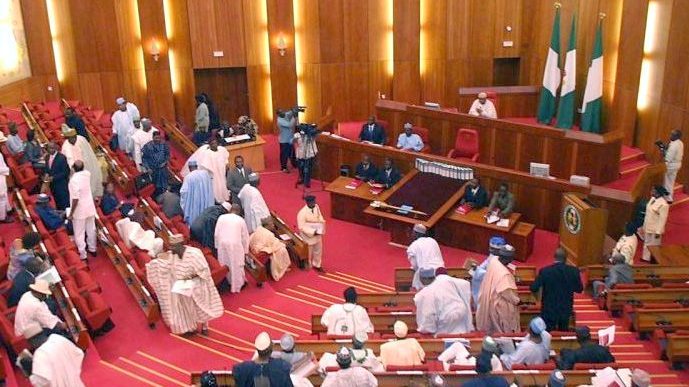News
DisCos under attack as Senate probes power supply in Nigeria

The Senate has mandated its Committee on Power to, within four weeks, investigate the activities of power generating and distribution companies to unravel the cause of unsteady power supply in Nigeria.
NAN reports that the decision was reached sequel to a motion considered during plenary on Tuesday.
Sen.Chukwuka Utazi, (PDP-Enugu North) who sponsored the motion, said Nigeria, with a population of 200 million and an annual growth rate of 2.6 percent per annum, is the seventh most populous nation on earth.
He said that beyond generation and transmission, Distribution Companies (DisCos) lack the financial and technical capacity required, thereby resulting in their inability to pay for power which Generation Companies (GenCos) deliver to the grid.
According to Utazi, the power generating or installed capacity of Nigeria in relation to its population and Gross Domestic Product cannot place the country to compete favourably in terms of development with other nations.
Citing Indonesia and the Philippines as examples, the lawmaker noted that both countries with a population of 267 million and 107 million, respectively, have installed power capacity of 60,000 MW and generating capacity of 42,465 MW as well as installed capacity of 20,055 MW and generating capacity of 16,271ME.
The lawmaker while expressing optimism that Nigeria can set a realisable target of generating capacity of 100,000 MW in the next ten years, said the same can be achieved through a mix of energy sources like natural gas, hydro, coal, wind and renewable energy.
“The northern part of the country with vast expanse of land can tap into large solar farms while the southern parts of the country with significant reserves of natural gas and cola can generate power from same.
“Both the north and South have large water bodies that can still be dammed for hydro,” Utazi said.
The lawmaker further posited that Nigeria can improve on its transmission infrastructure by up-scaling its networks from the current 330kv and 132kv to 765kv super grid to enable big power plants to send power through such grid over long distances.
In her contribution, Sen. Oluremi Tinubu (APC-Lagos Central) said the failure of the power sector was largely due to the refusal of the leadership of past governments to embrace new ideas.
Sen. representing Cross River South, Gershom Bassey, said what Nigeria needs to resolve its power problem is to develop the country’s transmission infrastructure.
He advised the Federal Government to build on existing policy frameworks inherited from past administrations.
Sen. Bala Ibn Na’Allah (APC -Kebbi ) alleged that some high placed persons were sabotaging efforts by the Federal government to fix the power problems in the country.
“There is a need to break their strong hold on electricity generation and distribution”, he said.
Sen. Ibrahim Gobir (APC-Sokoto ) stressed the need to review the nation’s energy bill, noting that the generation and distribution of power could be decentralised to enable state and local government areas to participate in the sector to improve in the distribution.
Sen. Rochas Okorocha (Imo-West) urged the federal government to concede the generation and distribution of power to Public Private participation (PPP), because of the huge capital requirements to drive the sector government can not successfully meet the nation’s power challenges.
-
Society News4 years ago
Jamaican man beheads wife after finding out their 6 kids are not his
-
Society News6 years ago
EXCLUSIVE: The Complete Story of Dolapo Awosika, John Fashanu and Prophet Kasali Sex Mess
-
News4 years ago
Pastor Osagie Ize-Iyamu, His Membership Of Secret Cult, And Other Issues Touching On His Public Credentials Examined by Barr. PATRICK I. BIOSE
-
News4 years ago
BREAKING: Ajimobi’s daughter-in-law blast Gov. Makinde, says gov can’t surpass ex-Oyo gov
-
News4 years ago
BREAKING: 2 arrested as NAF begins investigations into Tolulope’s death
-
Crime4 years ago
Exclusive: Female Aide Fingered In Oko Oloyun’s Murder + Banking Transactions That Nailed Husband
-
News4 years ago
BREAKING: Police take over Edo House of Assembly as APC, Oshiomhole move to seize control
-
News4 years ago
How Ex-EFCC Spokesman, Tony Orilade Buried Dad
Notice: Undefined variable: user_ID in /var/www/first2023/wp-content/themes/firstweekly/comments.php on line 48
You must be logged in to post a comment Login